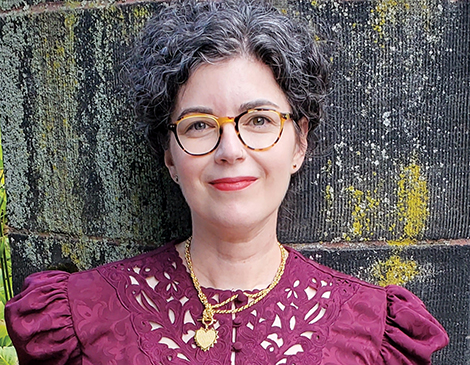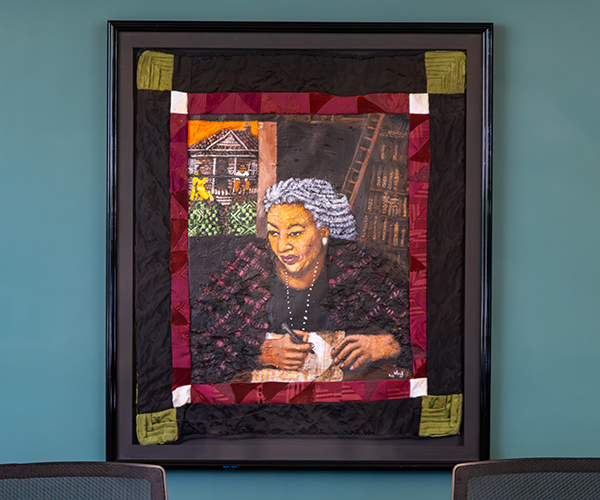Local author Dana McSwain raked in four literary awards in 2021 for her debut horror novel, Roseneath, including the NYC Big Book Award and a Benjamin Franklin Award. More importantly, she did so without the aid or guidance of an agent or major publishing company.
Roseneath takes place within a centuries-old home in Cleveland and follows the story of a woman and her husband who encounter the ghost of a dead child in an attic and something even more malevolent in the hellish cellar below. The novel’s sequel, Relict, is expected to arrive in the fall. In the lead-up to its release, McSwain shares a few pieces of advice for writing in the horror genre.
Be dark and honest.
When writing within the horror genre, McSwain encourages authors to be open to their own fears and vulnerabilities, which often means understanding your own lived experiences.
“If you want to write a story that really unsettles people, you have to dig into what really frightens you,” McSwain says. “I suffered the loss of my fertility; that’s a really terrifying thing for a human being to go through. It sheds a different light on your marriage, as well. You can really delve deep into those themes as a horror writer in a way that maybe you can’t necessarily in literary fiction.”
In McSwain’s mind, writing from a personal perspective resonates much more with readers, who can sense plot points that feel phoned in. Rather than try to impress at the start, aim for brutal honesty.
Work on lighter projects.
Unsurprisingly, writing macabre tales of woe and misery means subjecting yourself to those feelings for hours (if not days) on end. Staying in that headspace for long periods of time can take a toll on your mental health. So, McSwain recommends shifting focus to something less intense when you need to.
“You want to be working on something else at the same time, which I know sounds like walking and chewing bubblegum or something, but you really do want to,” McSwain says. “When I was writing Roseneath, which is incredibly dark and grim, it was just really overwhelming. So, what I would do is I would take a day or two a week and I would just not work on it. I would work on these other lighter stories as a way to get the wiggles out.”
McSwain used these little breaks from the horror to come back with fresh eyes and make changes for the better, including lightening aspects of the story when they seemed needlessly dark.
Try to tackle your cliches.
As with any genre, horror has its fair share of common tropes. A slasher terrorizing unsuspecting college kids on vacation. A young girl under the possession of an extradimensional being. While McSwain says that cliches like this can be a good thing in writing, she cautions about leaning too far into them.
“I think that tropes and stereotypes are nice, because they catch people up very quickly, and readers want something familiar,” McSwain says. “But if you lean too hard in them, you’re just another book on the shelf. I think that it’s okay to say, Oh, I want to write a haunted house story, but you have to find a way to distinguish it.”
To do this, McSwain recommends identifying some of the cliches in your work and flipping them into something unexpected. Also, let people you trust read your work before publishing. Editors and trusted readers allowed McSwain to identify parts in the story in need of more imagination — parts where she had to “turn up the Dana.”




